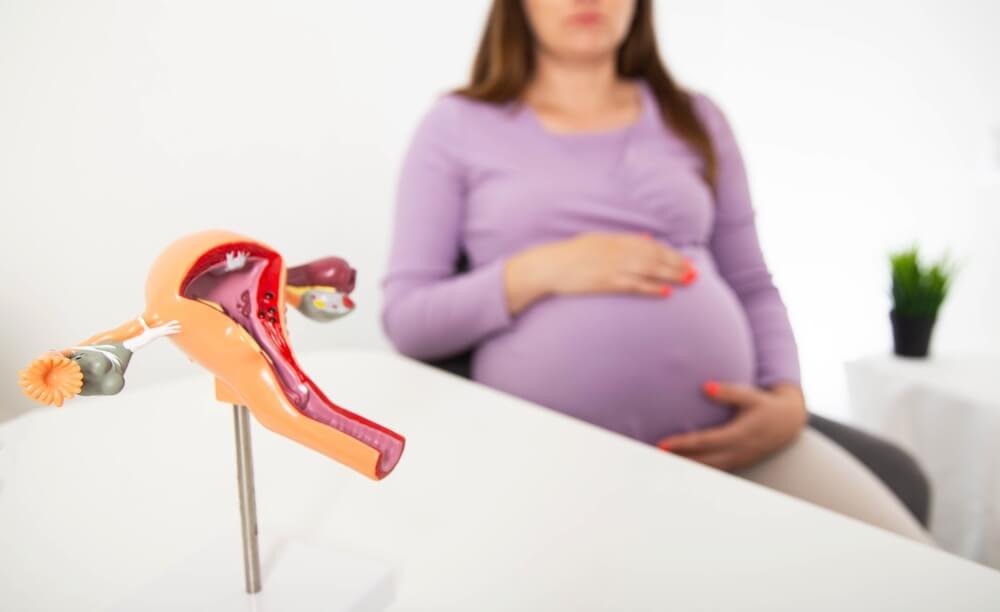Pregnancy is undoubtedly a remarkable journey, but it also brings about a heightened sense of responsibility for both the mother and the unborn child. One crucial aspect that often does not receive the attention it deserves is the potential impact of sexually transmitted infections (STIs) on pregnancy. Among these, syphilis stands out as a serious concern, raising questions about its effects on maternal health and the developing fetus.
Obstetrics and Gynecology in South Miami, Florida, is one of the places that delves into the intricate relationship between syphilis and pregnancy, exploring the symptoms, risks, and essential aspects of syphilis treatment during pregnancy, so make sure you continue reading the article at hand, it might be helpful to you.
Syphilis During Pregnancy: An Overview
Syphilis, a bacterial infection caused by Treponema pallidum, has been a medical concern for centuries. While it is a manageable condition when diagnosed and treated promptly, its impact on pregnancy can be profound if left unchecked. The bacterium is primarily transmitted through sexual contact, making prenatal screening crucial for identifying and addressing syphilis during pregnancy. Pregnancies with this condition are risky and need to be handled with care and continuous supervision by a specialized medical professional.
Syphilis in Pregnancy Symptoms
Recognizing syphilis in pregnancy symptoms is pivotal for a timely intervention. The signs can be subtle and may mimic other common conditions, underscoring the importance of regular prenatal check-ups. The classic stages of syphilis—primary, secondary, latent, and tertiary—manifest differently, but during pregnancy, primary and secondary stages are particularly pertinent.
- Primary syphilis is the first stage of the infection and may present as painless sores or ulcers at the infection site, often going unnoticed. These ulcers are called chancre and can be located typically on the genitals, anus, or mouth.
- Secondary syphilis, on the other hand, can bring about a rash, mucous membrane lesions, and flu-like symptoms, as well as skin rashes, fever, and swollen lymph nodes. It typically occurs several weeks to a few months after the initial infection, and the symptoms may not be as distinct during pregnancy, emphasizing the need for specialized testing to detect syphilis in pregnancy.

How Does Syphilis Affect Pregnancy?
The impact of syphilis on pregnancy can extend beyond the immediate symptoms, affecting both the mother and the developing fetus. Untreated syphilis during pregnancy poses significant risks, including but not limited to:
- Congenital Syphilis: The most alarming consequence of untreated syphilis in pregnancy is the risk of congenital syphilis. This occurs when the infection is transmitted from the mother to the fetus, potentially leading to severe complications. Congenital syphilis can result in stillbirth, premature birth, low birth weight, and a range of developmental abnormalities affecting the bones, teeth, and vital organs.
- Pregnancy Complications: Syphilis can increase the likelihood of other complications during pregnancy, such as placental abruption, which is the premature separation of the placenta from the uterus wall. This can result in significant bleeding and jeopardize both maternal and fetal well-being.
- Increased Risk of Transmission: Mothers with syphilis have an increased risk of transmitting the infection to their newborns. This can occur during pregnancy, childbirth, or breastfeeding, underlining the need for comprehensive antenatal care and timely treatment.
Syphilis Treatment in Pregnancy: Navigating the Challenges
Addressing syphilis treatment in pregnancy requires a delicate balance between effectively treating the infection and ensuring the safety of both the mother and the developing baby. The choice of antibiotics is a critical consideration, as some medications may pose risks to the fetus. Penicillin remains the primary treatment for syphilis in pregnancy, given its proven efficacy and safety. However, penicillin allergies necessitate careful alternatives, with close monitoring to manage potential adverse effects.
Also, the specific treatment regimen depends on the stage of syphilis:
- Early Syphilis (Primary, Secondary, or Early Latent): For pregnant women with early syphilis, a single dose of benzathine penicillin G is the recommended treatment. This injection is administered into the muscle (intramuscular injection). Penicillin is the preferred treatment because it is effective against Treponema pallidum and is generally safe for both the pregnant woman and the fetus.
- Late Latent Syphilis or Tertiary Syphilis: If the syphilis infection has progressed to the late latent or tertiary stage, a longer course of penicillin may be necessary. This could involve multiple doses given over an extended period.
- Neurosyphilis: If syphilis has affected the nervous system (neurosyphilis), more intensive treatment with higher doses of penicillin may be required.
Can You Get Rid of Syphilis While Pregnant?
If the question of can you get rid of syphilis while pregnant is haunting you, here is some good news. Syphilis is treatable during pregnancy. Timely and appropriate intervention can significantly reduce the risks associated with syphilis in pregnancy. Regular prenatal check-ups, including syphilis screening, are imperative for early detection and prompt treatment.
If a pregnant woman has syphilis, it is crucial to seek immediate medical attention. As mentioned, treatment for syphilis during pregnancy typically involves antibiotics, such as penicillin. Penicillin is considered the most effective treatment for syphilis and is generally safe for use during pregnancy. It is essential to consult with a healthcare professional to determine the appropriate dosage and duration of treatment based on the stage of syphilis and the individual’s health.
Timely and adequate treatment can significantly reduce the risk of transmitting syphilis to the unborn child and prevent complications associated with congenital syphilis. Pregnant individuals should discuss any concerns or questions about syphilis treatment with their healthcare provider, who can provide personalized guidance based on their specific health status and the stage of the infection. Early detection and treatment are key to preventing complications and promoting the health of both the pregnant person and the baby.

Navigating the Path to a Healthy Pregnancy
In conclusion, understanding the impact of syphilis on pregnancy is crucial for expectant mothers and healthcare providers alike. Timely screening, prompt diagnosis, and appropriate syphilis treatment during pregnancy can mitigate the risks and contribute to a healthier pregnancy outcome.
As you embark on this journey of parenthood, do not underestimate the significance of comprehensive prenatal care. By staying informed and proactive, you empower yourself to navigate the challenges, ensuring a safer and healthier start for the newest member of your family. Being calm and well-informed will positively affect your pregnancy in general, so practice reduction of stress and panic and rely on methods such as meditation and rest.
We Are Here for You!
Many patients might feel frightened when it comes to a syphilis diagnosis during pregnancy but do not panic. There are many different ways to mitigate the condition, and our center is here for you, regardless if you have a question or concern or if you need guidance and full support.
We have supported different patients on their path to recovery, and our skilled team will most definitely be there for you to help you deliver a healthy and happy baby. Do not disregard the seriousness of the condition and seek immediate attention after a confirmed diagnosis. We are here for you!


